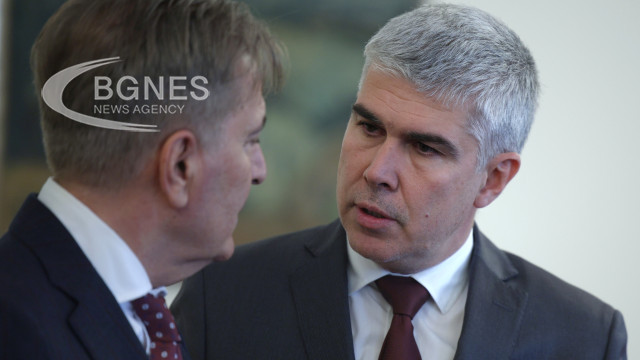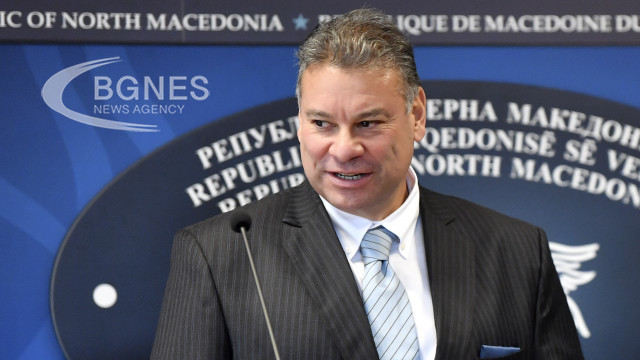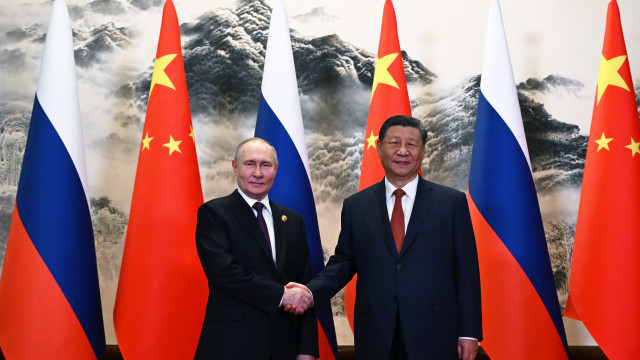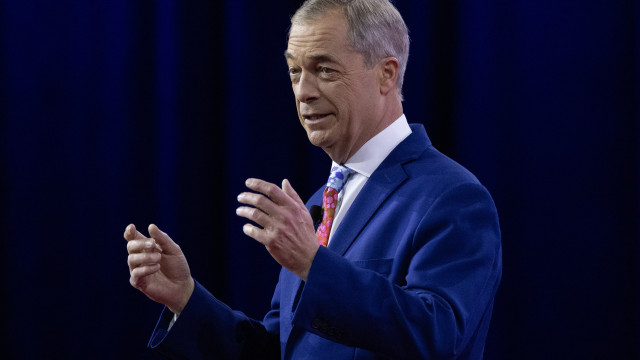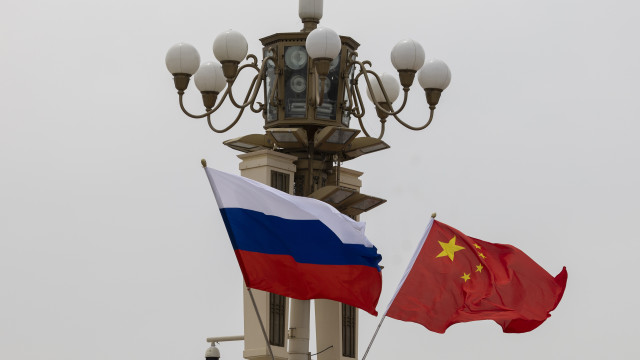The biggest challenge is funding for Ukraine and the reason for that is that US has a serious problem of a looming deficit. The House is controlled by Republicans and many of them post fiscal conservatism as one of the major issues and that's why they see the aid for Ukraine as one of the issues on the chopping block.
Given all the challenges that China direct confrontation with the United States or US allies over Taiwan is not justified.
This was stated in an interview for BGNES by Associate Professor Ivan Dinev Ivanov, School of Public and International Affairs at the University of Cincinnati.
"American foreign policy today faces unprecedented challenges. United States has declared its support for Ukraine in the war against Russia and also support for Israel in the conflict that we have in Gaza going on right now. The problem however is that both of those conflicts suffer from two big challenges", Ivanov said.
The first is the declining support particularly in the case of the Middle East for Israeli operation and the need for the United States to commit and support the State of Israel as its closest ally. And in the war in Ukraine similarly the United States foreign policy is facing declining support within american society, declining support in Europe and most importantly, as the conflict drags on, declining support for american funding to the ukrainian side and for Israel.
"In particular right now the biggest challenge is funding for Ukraine and the reason for that is that US has a serious problem of a looming deficit. The House is controlled by Republicans and many of them post fiscal conservatism as one of the major issues and that's why they see the aid for Ukraine as one of the issues on the chopping block", Ivanov emphasized. What we're seeing up to date is a serious challenge for Washington to justify its financial support for Kyiv.
"Ukraine has a just cause and the majority of american society support that just cause but becomes more skeptical about the financial aspect of this support", he added.
The university professor pointed out that the USA position has been consistent that negotiations can only start when both parties are willing to sit down and negotiate, and as long as the ukrainian party is not willing to do that, then US government is not going to impose such a decision. Instead what it will do is it will provide support as needed that includes military and financial aid.
"Securing that aid has become problematic in the legislature because republicans control it. The problem is that this issue has become much more salient because of the unsustainability of both supporting the Ukraine politically but also financially and militarily. We have a presidential campaign preparing for the next year. We have candidates on the republican side, and many of them have expressed concerns. That includes not just President Trump, who is also trying to get the nomination and is so far the front run of the republican party, but also other candidates on the republican side that have raised the issue that Ukraine has to start negotiating and that it makes sense to make a deal and end war. This has created bifurcation, but also uncertainty in american foreign policy", he said.
Ivanov noted that If US foreign policy has been fairly consistent during the cold war and even in the first decades following the end of the Cold War, with regard to issues like the right of countries to choose their foreign policy, this issue is not that clear anymore. There are serious divisions in political elites, and there's a serious debate going on within the two major parties.
As Zbigniew Brzezinski calls it, a foreign policy should change only five degrees at a time, like an aircraft carrier. You can just turn it around very quickly. So in that context, Donald Trump probably did more than five degrees at a time. But some argue that, in fact, the foreign policy was not that bad. And then you could see some positive and successful strides. So he couldn't make a deal in North Korea, that was clear. But at the same time, he could keep Putin at check in a certain degree, at least, he did not start any major war. At the same time, you could also look and see that Trump was able to get, in his own way, european allies, NATO allies, to commit more funds for defense without having the threat that we have now with the war in Ukraine. And some argue that this was actually an accomplishment. The way that he did it, however, and the way he negotiated has been heavily criticized. But the second term, it's expected that might be much more different. It might be a president that is willing to get even with all of his political opponents, and that might even affect foreign policy in obscure ways, Assoc. Prof. Ivan Ivanov added.
He pointed out that there are two theoretical explanations for the future of US-China relations. Some argue that as China rises and becomes the great power that is at par with the United States, while the last becomes sort of the great power in decline. Proponents of this theory believe that it is very likely that those two great powers will eventually clash, the challenger and the status quo power, "because if you assume that the US has exercised overwhelming dominance in virtually all the major geographic regions, so China, as a rising power, would naturally challenge it, and you would expect to see a conflict."
The alternative explanation to this is that China is nonetheless not interested to confront United States militarily, directly, and for a very simple reason, that United States is China's major export market. China has grown because it has been able to trade and export with United States, but also with the european allies. Through that export led growth, China has secured its rise to great power or major power status.
"So there's no reason to kill the goose that lays the golden eggs. Where do I stand on this perspective? There's no doubt that we're witnessing great power competition. There's also no doubt that United States influence today in the world has declined relative to 20 years ago. But you have to also understand that US domination that followed after the end of the Cold War is an aberrant condition in the international system. So this is something that happens somewhat rarely and cannot last very long. So it's a natural to expect that China will catch up. But even today's China that catches up with 1.2 billion people, population still has a GDP below that of the United States, and still between four and five times larger than United States in terms of population. So if you look at per capita, their wealth and their power is only a fraction of that of the United States. I don't think that it makes rational sense to expect great power direct confrontation. You are going to naturally see that not only China, but also in this case, Putin's Russia are going to challenge US dominance and you're going to also see many places where US dominance is declining. And then it becomes the bigger question whether places where US dominance has declined are doing any better or worse. This is to be seen", Ivanov explained.
He thinks that the Taiwan question is one that very much China has a key decision whether they want to do that in a peaceful way. So far, they have signaled that even though they're claiming Taiwan to become a part of China, they are not going to use military force. There was a significant anticipation that following Russia's invasion in Ukraine, China would do the same thing. So far, we've seen that there's no indication, of course, United States uses the power of deterrence and the deterrent effect that it has through military presence in the region. Obviously, that has provided given result to the extent that there hasn't been any direct confrontation.
Ivanov also said: "given all the challenges that China, chinese society, and chinese economy is facing today, rational models indicate that direct confrontation with the United States or US allies over Taiwan is not justified. But again, it was also not rational for Putin to attack Ukraine on February 24, 2022. All the factors indicate that it didn't make sense and it did happen. I do believe, however, that the leadership in Beijing is different and thinks differently than the leadership in Moscow."
He also commented on the issues concerning the Western Balkans and the tensiona between Serbia and Kosovo.
"I'm going to refrain from giving policy advice to the bulgarian government about specific policy with regard to Kosovo. In particular, Bulgaria is certainly one of the countries that have recognized Kosovo. And ultimately the path to stability is to get Serbia to recognize Kosovo. It's a long path, but that's the end goal. That's consistent and persistent positions of the european states and in the EU. It is easy to expect that the Western Balkans are the weak spot, along with other places that can weaken the common european position, the coordinated EU efforts, and that can cause rifts. Of course, rifts can also happen, in particular Eastern Europe, in Slovakia, Hungary, in Bulgaria, also, where naturally the pro-Russian influence is pretty robust and pretty powerful. It has been in the last three years. I've looked into some public opinion data, and it's clearly they're the so called, the outliers or the subgroupings of the pro Russia, along with Greece, of course, and Cyprus."
"And so, of course, they're naturally going to try to weaken that weak link. That's the place where you want to hit. And that was where Putin's Russia and its own interests are going to try to weaken the European Union, the european position, and the so called western front. We should expect that. But at the same time, we have to be also cognizant that in case of Serbia, in case of Bosnia and in case of Kosovo, that's probably the place where russian policy has to be very masterful in order to be successful, because it's still Europe's backyard and still Europe puts a lot of efforts. And Russians, despite all of their traditional and non traditional methods, through hybrid propaganda, hybrid campaigns, they're still not probably going to be as successful as they might be in the Middle east or in Asia, where naturally the rifts are far bigger. And of course the stakes are also far bigger. The Western Balkans could be a great price for Putin if it cracks down and turns pro Russian. But again, the price of doing that in this small, fragmented society, the cost of doing that, particularly for the local elites, is too high. And I don't think that the local elites and societies will be able to accept that and switch fundamentally their foreign policy. That's why they're trying to balance butchic is trying to play both ways. Bulgaria, as far as I could say, Bulgaria has its own interest in Serbia related to the bulgarian communities there. Bulgaria needs Serbia as a partner. But Bulgaria also has to be very articulate, as far as I could say, any policy advice in conditions and criteria and expectations that it has with regard to the serbian site that need to be met in order for Serbia to move forward. In the end of the day, Bulgaria is a part of the this is the EU border and Serbia needs to feel the pressure of the EU border", he added in conclusion. /BGNES


